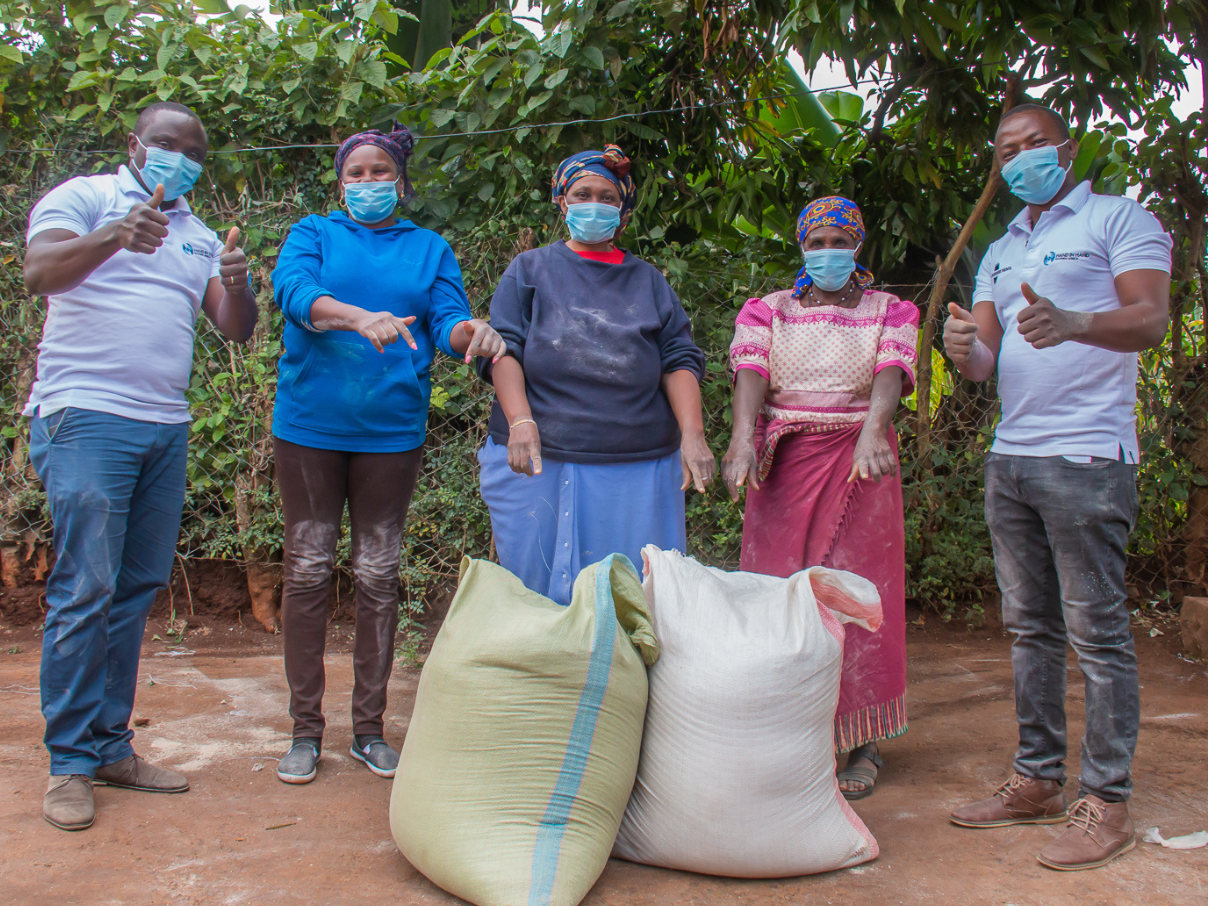Visa’s project to fight poverty through job creation boosts small business owners’ profits by 45 percentage points
23 Jun 2022

A project in Kenya that tackles poverty by supporting people to set up and run their own businesses has delivered unprecedented results – with businesses enrolled in the ‘acceleration’ component of the scheme typically increasing profits by 45 percentage points.
The three-year project, Kenya Micro-Enterprise Success Programme (KMES), delivered by Hand in Hand and funded by Visa Inc., is reaching 10,200 people, mainly women, in some of the world’s most deprived areas. When women can earn their own incomes and decide how to spend it, whole communities flourish – with more children in school and more families with access to healthcare.
During the life of the project, Hand in Hand is providing provide mentoring, specialist support and training to 8,600 people in Kwangware, Kiambu, Kitengala and Kasarani to start their own micro-enterprises from scratch – as part of the ‘start up’ cohort.
A further 1,600 existing small businesses owners are taking part in the ‘acceleration’ component of the programme – helping people scale up their businesses to reach larger markets. This creates more strong, resilient, local businesses, with the potential to create jobs within the community.
But, just months after the project began, Kenya was hit by its first wave of coronavirus cases, and the country locked down. For Kenyans, the pandemic wasn’t just a health crisis, it was an economic crisis as well – devastating livelihoods and plunging millions below the poverty line.
Despite this – the project has already achieved remarkable success, particularly for the ‘accelerator’ cohort of the scheme.
During the Covid-19 crisis, most of the small business owners’ takings fell. However, thanks to the business and financial efficiency training they’d received from Hand in Hand, programme members were able to act quickly to reduce their operating costs during lockdown. These cost-saving initiatives proved to be sustainable over the longer term as well. On average, members in this group saw their profits increase by an incredible 45 percentage points in just six months.
Programme members in both groups also learned how to use social media and e-commerce – selling goods and services on Facebook and online marketplaces like Jumia. They were supported to access new value chains.
For businesses to expand, loans are crucial. However, it can be difficult for people to obtain credit from traditional financial institutions, such as banks, if they don’t have any credit history or have never held a bank account. To overcome these barriers, Hand in Hand is working closely with local banks to help project members gain access to loans and credit, so they can invest in staff, equipment and stock.
Corine Mbiaketcham, Visa’s Vice President and General Manager for East Africa said, “At Visa, we are committed to empowering and supporting women entrepreneurs, because it impacts our community as a whole. We partner to create a brighter future for generations to come. Our partnership with Hand in Hand is one of the crucial ones for us to achieve this. We are pleased with the impact that the program has had on the women-owned business in Kawangware, Kiambu, Kitengela and Kasarani.”
Dorothea Arndt, CEO at Hand in Hand International, said: “When Covid hit, no one knew what to expect – our hope was simply that members didn’t lose money. Instead, the ‘survival tactics’ people employed to reduce their overheads during the long months of lockdown led to long-term, sustainable reductions in business costs – and, in the case of the more established businesses, an incredible 45 percentage points average rise in profits.
“During the pandemic many small entrepreneurs in East Africa experienced a credit crunch – thanks to our partnership with Visa, many of our members were able to expand their access to credit instead.”
Learn more about accelerators